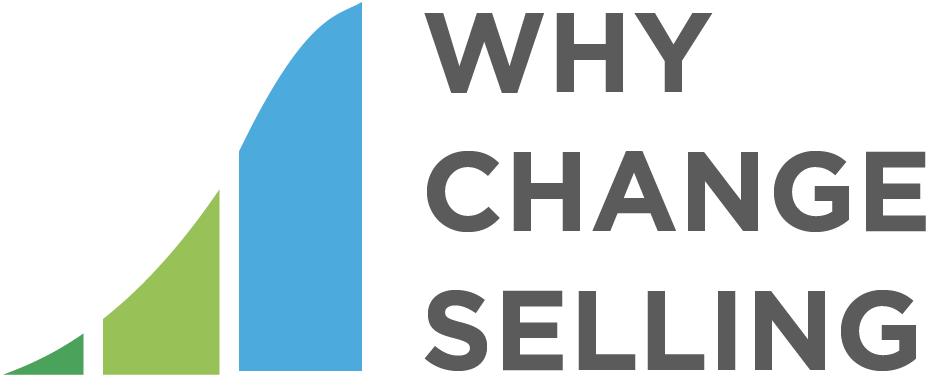This three part blog series started with a guest post on
the evolution of marketing and PR, by PR-consultant-turned-inbound-marketer
Ellie Becker.
The series continues with a post on the changing perceptions and realities of the sales role in the B2B buying process with Mike Bosworth. Mike Bosworth is the founder of Solution Selling. From Solution Selling, Customer Centric Selling was born. He is the co-founder of Story Leaders in which he provides workshops and executive coaching, helping people learn how to use the powers of story and empathic listening to connect with, inspire, and influence change in others.
The series concludes with a post from Mark Gibson, entitled B2B Sales and Marketing in Transition, What's Working".
The buyer is firmly in charge of the buy-sell relationship and the role of a salesperson in many cases is in the facilitation of a buying process.
In a recent Sirius Decisions Perspective, CIO’s interviewed, solved their problems in the following order.
At this point in the buy cycle, the buyer pretty much knows what they need to solve their problem and who the players are with viable offerings, what remains is to convince top management they made the best decision for the company and were able get the best price from the vendor they emotionally wanted to buy from, their ‘preferred’ vendor.
With the exception of the top 10-15% of salespeople who typically run most deals, this new buying approach excludes salespeople until the buyer is ready to talk to a salesperson.
The members of this elite group of salespeople, who are able to engage earlier in the buy cycle, are the initiators of deals, the instigators of action, the challengers and the status-quo busters, who are able to connect with buyers.
Once connected, they are able to engage in conversation around buyer issues and develop trust and influence through the insight and industry knowledge they bring as trusted advisors first and salespeople second.
We have all had occasions over the years to emotionally connect with strangers who are so compelling to us that we say to ourselves, "whatever she is selling, I'm buying!” Bill Clinton is a great example of someone who can emotionally connect with people. Ideally, a salesperson can gain that kind of trust and influence with a buyer before they bring out their offering.
Buyers used to need sellers for information about new products, technology roadmaps and industry trends and they would pretend to be interested in order to get that information.
Today, they do not need the seller for information. When they get a 'touch' opportunity today, salespeople have to have the ability to get the buyer to want to buy from them as human beings.
If you can connect emotionally with buyers and bring insight to the table that truly creates value, you have can have a relationship with any buyer. Is it any wonder that just 13% of sellers are delivering 87% of the revenue? (Sales Benchmark Index).

The series continues with a post on the changing perceptions and realities of the sales role in the B2B buying process with Mike Bosworth. Mike Bosworth is the founder of Solution Selling. From Solution Selling, Customer Centric Selling was born. He is the co-founder of Story Leaders in which he provides workshops and executive coaching, helping people learn how to use the powers of story and empathic listening to connect with, inspire, and influence change in others.
The series concludes with a post from Mark Gibson, entitled B2B Sales and Marketing in Transition, What's Working".
The Product is so Strong it Sells Itself!
Guest Post by Mike Bosworth
Actually the above statement is a myth, complex B2B products still need to be sold, but anyone selling today will confess that it's way more difficult than it was 10 or 15 years ago.The buyer is firmly in charge of the buy-sell relationship and the role of a salesperson in many cases is in the facilitation of a buying process.
In a recent Sirius Decisions Perspective, CIO’s interviewed, solved their problems in the following order.
- Leverage search engines by entering the problem I am trying to solve or an initiative I’m considering.
- Explore a known vendor Website.
- Ask my team or colleagues to come back with a series of options.
At this point in the buy cycle, the buyer pretty much knows what they need to solve their problem and who the players are with viable offerings, what remains is to convince top management they made the best decision for the company and were able get the best price from the vendor they emotionally wanted to buy from, their ‘preferred’ vendor.
With the exception of the top 10-15% of salespeople who typically run most deals, this new buying approach excludes salespeople until the buyer is ready to talk to a salesperson.
The members of this elite group of salespeople, who are able to engage earlier in the buy cycle, are the initiators of deals, the instigators of action, the challengers and the status-quo busters, who are able to connect with buyers.
Once connected, they are able to engage in conversation around buyer issues and develop trust and influence through the insight and industry knowledge they bring as trusted advisors first and salespeople second.
Buyers Aren’t Looking for Relationships with Salespeople
All process and competency falls short if pushed on the buyer before there is an emotional connection. Trust comes from an emotional connection first and demonstrated competence second. If buyers feel connected with you, they will allow you to then demonstrate your competence.We have all had occasions over the years to emotionally connect with strangers who are so compelling to us that we say to ourselves, "whatever she is selling, I'm buying!” Bill Clinton is a great example of someone who can emotionally connect with people. Ideally, a salesperson can gain that kind of trust and influence with a buyer before they bring out their offering.
Buyers used to need sellers for information about new products, technology roadmaps and industry trends and they would pretend to be interested in order to get that information.
Today, they do not need the seller for information. When they get a 'touch' opportunity today, salespeople have to have the ability to get the buyer to want to buy from them as human beings.
If you can connect emotionally with buyers and bring insight to the table that truly creates value, you have can have a relationship with any buyer. Is it any wonder that just 13% of sellers are delivering 87% of the revenue? (Sales Benchmark Index).




